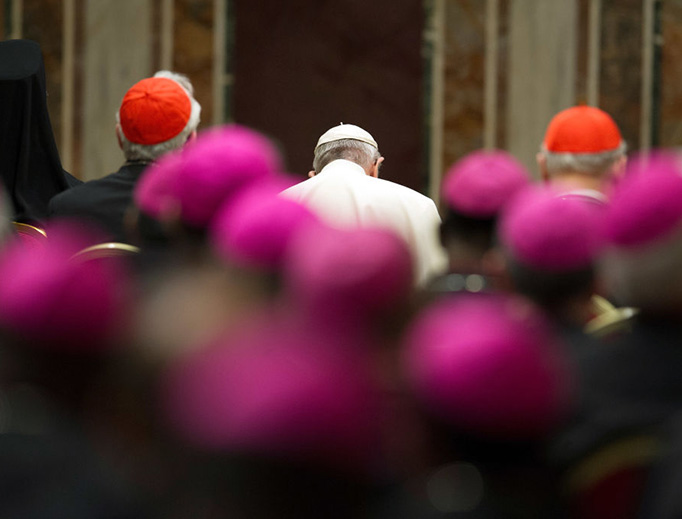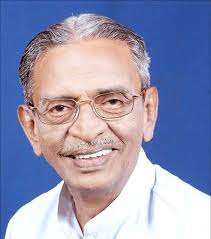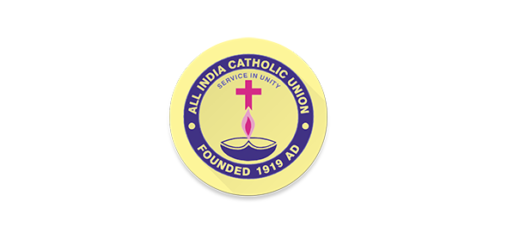Transparency at the top please! Why is Vatican’s process for holding bishops accountable still so opaque?

Jesuit Review America
March 21, 2019
Note: What did the much trumpeted Rome Clerical-Sex Summit achieve and failed to achieve? Even before it was convened, there was a hue and cry that it was going to be a great flop. After the meet there were blanket statements like (Mala eliye prasavichu) the mountain has given birth to a rat, due to lack of concrete proposals for action.
Positive side
But on the positive side:
1. It was for the first time that the chairmen of Bishops’ Conferences of the whole world, over 100 were called to Rome. It was an open admission that Clergy sex abuse was not a western problem, but of the entire world, of Churches, wherever there are clergy!
2. In the US, many regional conferences of bishops were held in preparation for the Rome summit. When they wanted to vote for concrete steps to be taken, Francis always said NO in order to give more and longer thought on a global level, to make those steps binding all, not just the West.
3. The concluding speech of the Pope was exceptionally long and tiring. It gave the impression that much thought had been given on all aspects of Clergy abuse by himself and all the organizers concerned. If the details are not spelt out, it only shows, they are still waiting for more inputs from various parts of the world.
Cardinals & Chile Resignations
In the last post in CCV if we dealt with only two top cardinals, McCarrick and Pell, in this we are studying one more from France, Cardinal Philippe Barbarin of Lyon, and all bishops of Chile who had to or were made to resign but the resignations of seven are so far accepted.
Even in the case of three cardinals, the punishments given are different — one laicized, another imprisoned but still appealing, and in the one in France the cardinal wanted to go one step more and resign, but the Pope is repeatedly refusing to accept his resignation.
Personal failure & Cover-ups
Here pops up the kind of crimes for which penal action against a bishop is necessary. Sexual abuse by the person concerned, Cardinal or bishop, and cover up of abuse by priests under him, it is very clear that the two – doing it oneself and covering up the action of another – are totally different in gravity. But the present understanding is that in both cases a bishop is to quit or to be removed from office.
Papal privilege?
The second – Cover-ups – will make an awful number of bishops to lose their job. In the case of Chile, although all the 34 resigned, Francis accepted so far the resignations of only seven. Should this be left to the will and pleasure of the Pope, to multiply cases like McCarrick? It shoud not, if a universal law of crime and punishment is to become credible!
Morality under review
The German bishops are only going to study the whole question of Christian morality, including celibacy, cohabitation, divorce-remarriage etc. and Francis has already scrapped such an institute set up by Pope John Paul II and put up another study on the lines of Amoris Laetitia by himself. So the whole question of Christian morality and theology is under serious review of Pope Francis!
Toothless Prodigal Father?
The God of Francis is Mercy, Compassion and Prodigal Father! But Francis has to be also – “fortis in re, suaviter in modo” – strong in deed and sweet in execution. He can’t, even appear to be diluting the TEN commandments. So he has to put the whole blame, at times on the Devil, to appease or pacify the kids blindly believing in the Catholic or Christian family.
`Rome has said and case is settled' was the old order. Now it is: Rome said it but discussion has just started only! The old tiger has lost all its teeth. The new prodigal Gandpa has lost all his teeth and has not even a denture! james kottoor, editor CCV
Read below Jesuit Review report in America
Since the summer of 2018, the church has seen three cardinals face specific consequences in connection with sexual abuse. Understanding these already complex cases has been made more difficult by unclear canonical procedures, by decisions reserved to Pope Francis himself and—most vexing—by limited communication from the Vatican about what process is being followed on what timeline.
Taken together, these cases illustrate why accountability for bishops has become a focus of the sexual abuse crisis in the church. Both process and communication need to be improved in order to rebuild trust among the people of God that the church is committed to healing and reform.
A quick review of the cases of the three cardinals suggests the challenges the church faces. With allegations of sexual abuse of a minor found to be credible and substantiated by the Archdiocese of New York, former Cardinal Theodore McCarrick was restricted from ministry and dismissed from the College of Cardinals (both decisions made under Pope Francis’ personal authority) very quickly.
Even though the criminal statute of limitations had passed, the Congregation for the Doctrine of the Faith conducted a canonical process and he was finally dismissed from the priesthood in early 2019, just before the international summit on preventing sexual abuse in the church began.
In order to rebuild trust, the church needs to be able to hold bishops and cardinals accountable for failures in responding to sexual abuse. But just as importantly, it needs to be seen to be able to hold them accountable.
Cardinal George Pell was found guilty in an Australian court of sexually abusing two minors in Melbourne during the 1990s. (Cardinal Pell was sentenced to six years in prison; an appeal of the verdict has been filed.) Hours before his sentencing, the Vatican confirmed that Cardinal Pell’s tenure as prefect of the Secretariat of the Economy—a position from which he had been on leave while standing trial—had concluded. It also confirmed that the C.D.F. would begin its own investigation, which could lead to canonical penalties, while his appeal proceeds in Australia.
Finally, Cardinal Philippe Barbarin was found guilty in a French court not of sexual abuse, but of failing to report sexual abuse by another priest from decades earlier. (Cardinal Barbarin received a suspended sentence of six months; he has insisted that he never tried to cover up the abuse and is appealing the verdict.) In a confusing development, Cardinal Barbarin submitted his resignation to Pope Francis, but the pope refused to accept it and asked the cardinal to take whatever course of action he thought best for his archdiocese. Cardinal Barbarin chose to ask his vicar general to govern the Archdiocese of Lyon in his stead. No canonical investigation has been announced.
When bishops or cardinals are charged either with abuse or with failure to prevent or report abuse, the church faces the question not only of whether they are responsible but also of how it will go about making that determination. No single process has been defined for these cases.
This results in a complicated interaction of deference to secular legal proceedings, choices made by other bishops and curial officials about which administrative procedures to follow, and decisions (such as whether to ask for or accept resignations) that lie within the pope’s sole discretion.
(The Vatican’s sex abuse summit is a time for decisive action. To prevent abuse, clericalism must be uprooted.The Editors)
Earlier moves to clarify the canonical process that applies to bishops in these cases seem to have stalled. In 2015, responding to recommendations from the Commission for the Protection of Minors, Pope Francis approved a new “judicial section”within the C.D.F. for judging bishops regarding “abuse of office” in failing to respond to the abuse of minors.
In an interview with America after her resignation from the commission, the abuse survivor Marie Collins said after its recommendation had been accepted by the pope, “the C.D.F. found some legal difficulties with it,” and while these were never clearly explained, eventually the recommendation was scrapped.
Then, in 2016, Pope Francis officially declared that negligence in relation to sexual abuse was among the “grave reasons” for which a bishop could be removed from office under canon law.
But in the three years since, while resignations have been accepted (for example, of some Chilean bishops) in connection with such negligence, this law has not yet been publicly applied to remove bishops from office. Most recently, the Vatican prevented the bishops of the United States from voting on their own proposals for holding bishops accountable, instructing them not to take action prior to the international summit in February. Alternate proposals were discussed at the summit, and the Vatican said that norms for holding bishops accountable are under development.
Protracted and opaque processes only reinforce the fear that the church is still more invested in protecting itself than in protecting those who suffer from abuse.
It is important to note that while canonical processes are unclear, the church is making some progress in holding bishops accountable. Former Cardinal McCarrick’s swift removal from both ministry and the College of Cardinals demonstrated Francis’ recognition of the seriousness of the charges.
The mass resignation of all 34 Chilean bishops, of which seven have so far been accepted, has been the most striking example so far of significant consequences for failures in episcopal governance. However, deciding which resignations to accept is also an exercise of Pope Francis’ discretion according to factors not publicly explained. This limits its usefulness as a model for the resolution of future cases or for the rebuilding of trust in the church.
The case of Cardinal Barbarin illustrates the challenges of resolving these cases without fuller explanation. After being convicted, he offered his resignation; Pope Francis refused to accept it, “invoking the presumption of innocence.” But what does this mean, since he had just been found guilty? Is the reference to maintaining the presumption of innocence until a final decision is reached in his appeal? Or is his innocence presumed relative to a canonical process—and if so has a canonical process been opened? The best possible interpretation is that Pope Francis is making a prudent decision to wait for the appeal to conclude before deciding whether to permanently remove a bishop from his diocese—but there is no reason that such a decision cannot be explained in just those terms.
In order to rebuild trust, the church needs to be able to hold bishops and cardinals accountable for failures in responding to sexual abuse. But just as importantly, it needs to be seen to be able to hold them accountable. Even if the unique relationship of bishops to the pope means that any canonical process will be subject to exceptions, such exceptions should be minimized and must be clearly explained. Even those who follow these issues full-time often struggle to understand what is happening within the halls of the Vatican. How then can the larger body of the church or secular society trust that the use of discretion is responsible rather than evasive and self-protective, as it has so sadly been in the past?
At a minimum, the Vatican should provide ongoing guidance about which cases involving bishops are open and which person or congregation is responsible for the next step in the process. When decisions are made, they should be clearly communicated, with an explanation of their rationale and a clear description of the next steps in any process. Protracted and opaque processes only reinforce the fear that the church is still more invested in protecting itself than in protecting those who suffer from abuse.


















"Failing to Report" if pursued in vigour with all sincerity and honesty could subject priests to great dilemma even to the extent of challenging the Sacrament of Confession..For example, one priest confesses his sexual aberration to another priest and the latter happens to know who on the other side is, would not this be a reportable offence? And if the priest hearing the confession simply takes recourse to 'my lips are closed concept' enshrined in the sacrament of confession, would he be not tormented by the an information that he did not report?